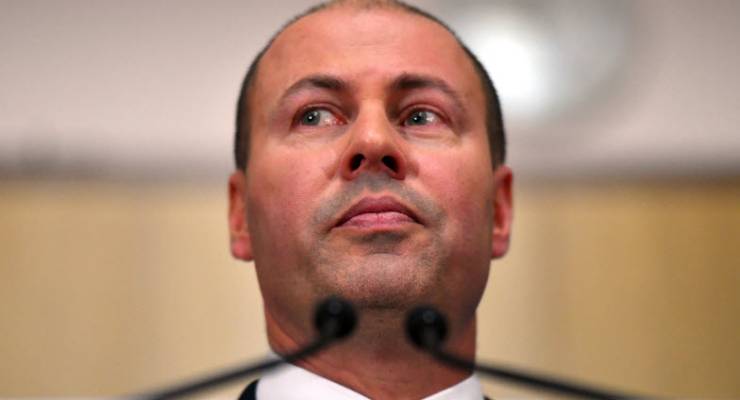
Yesterday, ratings agency Fitch reaffirmed Australia’s AAA rating, and treasurer Josh Frydenberg loved it so much he rushed out a statement about how it was “a strong expression of confidence in the Morrison government’s disciplined fiscal and economic management” that will “further boost confidence in the economy.”
Ten paragraphs of self-congratulation followed, including a pro forma jab at Labor, which was “focused on talking down the economy and engaging in panic and crisis, putting politics ahead of Australian jobs” (something the Coalition in opposition never did).
Fitch is the agency that gave Australia a coveted third triple-A rating back in 2011, when Wayne Swan was treasurer. That was surprisingly omitted from Frydenberg’s media release, as were some parts of Fitch’s statement — which was no doubt an oversight.
Particularly: “Fitch forecasts GDP growth to slow sharply to 1.7% in 2019, from 2.7% in 2018, due to domestic factors triggered by a protracted housing-market downturn. We expect economic growth to rise to 2.3% in 2020, as the housing market stabilises and consumption is supported by recent monetary policy-rate cuts, tax cuts, and public-infrastructure spending.”
That 2.3% is well below the government’s budget forecast of 2.75% for this financial year. Fitch also notes that the budget surplus is “remains sensitive to commodity-price developments. Iron ore prices have receded sharply from their mid-2019 highs, but remain above the assumptions incorporated into Fitch’s April 2019 budget outlook.”
That’s bad news for another surplus, on the current account, which Fitch forecasts to be “short-lived” as iron ore prices fall back.
One positive is that Fitch doesn’t see any more monetary policy easing. It “expects the RBA to remain on hold through 2021 to support economic growth and employment, and does not anticipate the use of quantitative easing.” That’s despite inflation remaining below 2% into 2021.
Tomorrow we’ll get the September quarter inflation. Westpac has tipped a 0.6% rise for annual CPI of 1.8% — but that’s off the back of the drought and government excise increases.
It thinks the Reserve Bank’s preferred trimmed mean reading will be just 0.3% or 1.5% annually, which will actually be a fall from the June quarter. Still, as Frydenberg says, it’s a “strong economic performance”.









So what does “confidence” look like Josh? A “confidence graph” turned upside down?
If this is strong, what does lame, frail and weak look like?
Their constant jabbing at Labor’s record tends to shit me to tears. Michaelia Cash yesterday called them job destroyers.
In what universe can an idiot politician get away with mouthing unmitigated lies, unchallenged, and then get airtime on the ABC?
That would be this universe.
Fraudberg is so typical of this government and their supporters – and too many Labor politicians.
Trouble is, fairy tales are for the nursery – you can’t go on telling people/kiddies what they want to hear all the time – sometimes you have to tell them what is really going on out there in grown-up world.
Sometimes you have to take responsibility for what needs doing yourself, and do it. Not leave it to the next lot coming through to clean up – at higher cost than it would take now.
We have a moribund economy, a significant drought, with farmers crying out for help. We have Newstart recipients living in poverty, and not enough jobs, retail is being slashed, the climate is begging for action, mental health, aged care, youth services, etc. are in crisis, but hey! How good’s a SURPLUS?
Economically literate, THINKING people are crying out for stimulus spending, if Scummo and Frydenberg can’t work out what to spend money on, I suggest they read the paragraph above and then ask themselves, WHAT GOOD’S A SURPLUS? And the answer? No bloody good at all!
Learn Modern Monetary Theory! MMT.